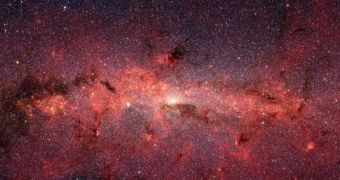Within a range of thirty light-years from the Sun, US astronomers believe that as much as a few dozen Earth-like planets could support life as we know it, but their beliefs cannot yet be corroborated by facts, as none of these celestial bodies has yet been found. Astrophysicists say that our immediate galactic “neighborhood” could be a very rich zone, as far as Earth-like planets go, even though, until now, very few exoplanets have fitted this description.
“There are something like a few dozen solar-type stars within something like 30 light years of the sun, and I would think that a good number of those – perhaps half of them have Earth-like planets. So I think there is a very good chance that we will find some Earth-like planets within 10, 20 or 30 light-years of the Sun,” Carnegie Institution for Science astrophysicist Alan Boss told at the annual meeting of the American Association for the Advancement of Science (AASS) on Thursday.
Even if what the scientist is claiming is true, there is still little hope for the human kind to be able to visit these worlds within a generation's life-time, as a single light-year is equivalent to a distance of 9.46 trillion kilometers (5.88 trillion miles). Multiply that by 10, 20, or 30, and what you get is a truly astronomical result. But, as far as observations go, these distances are fairly short, so the best chances of observatories finding the supposed Earth-like planets are NASA's Kepler space telescope, which will be launched later this year, and Europe's COROT satellite, which has been in orbit since 2006.
“I will be absolutely astonished if Kepler or COROT didn't find any earth-like planets, because basically we are finding them already,” Boss added during a news conference on Saturday. “I am not talking about a planet with intelligence on it. I simply say if you have a habitable world (...) sitting there, with the right temperature with water for a billion years, something is going to come out of it. At least we will have microbes.”
The search for Earth-like planets is “an interesting one and an important one to do because, even though there is a small probability of success, if you actually find something, it is an immense discovery to make. So you say, 'yes, this is worth doing,'” he concluded.

 14 DAY TRIAL //
14 DAY TRIAL //